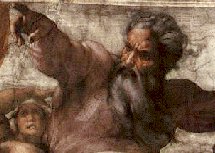Thy Will Be Done!

At the end of the Canon of the Mass, the priest introduces the Paternoster with these words: “Admonished by salutary precepts, and taught by the divine example, we make bold to say:” And then he begins the Our Father, the most perfect of prayers, given to us by the Saviour himself. But did we ever wonder about that introduction? Why do we have to be admonished by God to say the Our Father? Why do we need to “make bold” in order to say it?
There’s a very good reason that it requires boldness and courage to say the Our Father, at least if we mean what we say when we say it. Or do the words “Thy will be done, in earth as it is in heaven” mean nothing to us? Are they just sounds we utter into the air, like the barking of a dog or the squealing of a pig? Are our prayers so inconsequential to us that we can mindlessly pray for something we don’t want?
“Thy will be done.” When I pray these words, do I realize what I’m asking for? I am making the supplication to God that things in this life will not necessarily go according to the way I want them to, that I won’t always get what I want. I am literally begging God not to grant my every wish as though he were some fairytale genie in a bottle. Instead, I am renouncing my own will, and beseeching God that His will be done instead. And once we’re aware what God’s will is, it very often takes a lot of courage and boldness to accept it.
We have two very good examples in the First Joyful and First Sorrowful Mysteries of the Rosary. At the Annunciation, our blessed Lady gives up any plans she may have had for her life and abandons herself to divine Providence: “Be it done unto me according to thy will.” And in the Garden of Gethsemane, the human side of our Saviour anticipates the horrors of the Crucifixion and is so repulsed by what he must endure that he asks, “Father, if thou be willing, remove this cup from me: nevertheless not my will, but thine, be done.”
In my opinion, these are the two most difficult decades of the Rosary to pray with conviction. They are difficult because they demand the same response from us, no matter what terrible sufferings the future may hold. Only by following what our Saviour taught us through his divine example, can we indeed summon up the courage and make bold to say “Our Father, which art in heaven, hallowed be thy Name, thy kingdom come, thy will be done!”
